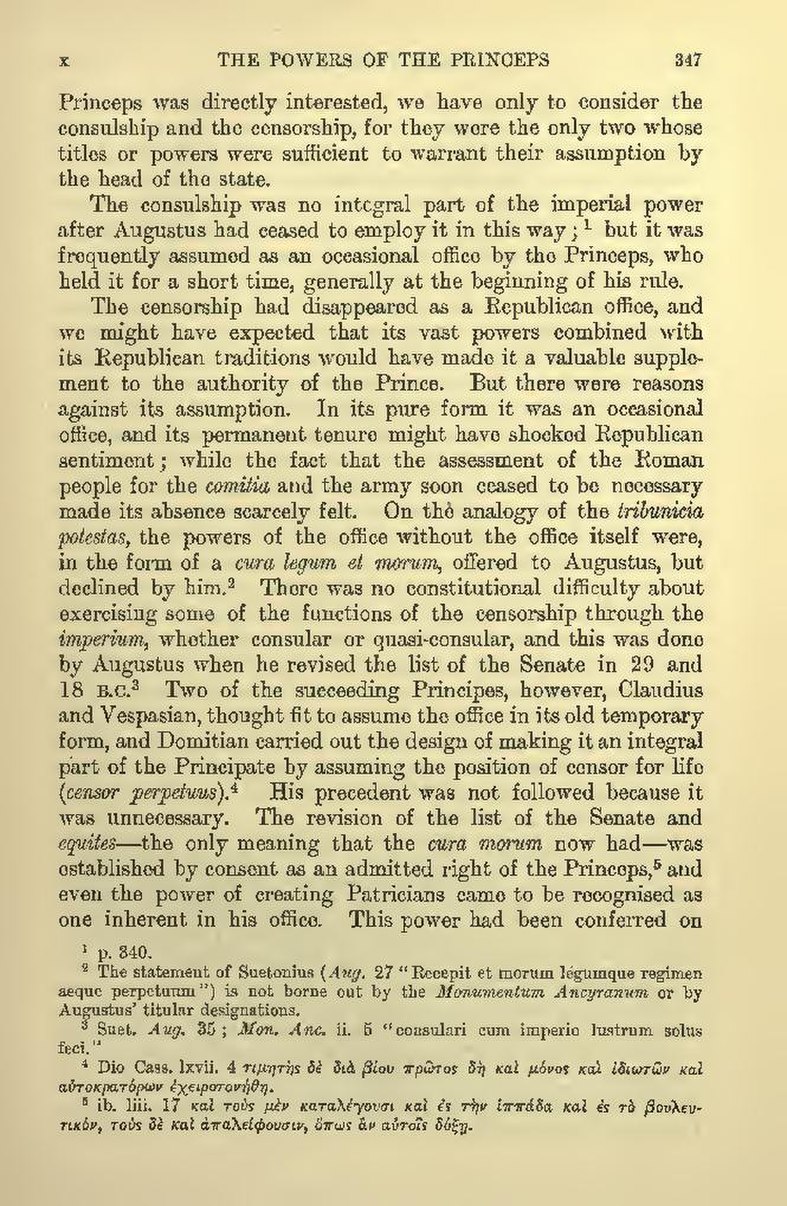Princeps was directly interested, we have only to consider the consulship and the censorship, for they were the only two whose titles or powers were sufficient to warrant their assumption by the head of the state.
The consulship was no integral part of the imperial power after Augustus had ceased to employ it in this way;[1] but it was frequently assumed as an occasional office by the Princeps, who held it for a short time, generally at the beginning of his rule.
The censorship had disappeared as a Republican office, and we might have expected that its vast powers combined with its Republican traditions would have made it a valuable supplement to the authority of the Prince. But there were reasons against its assumption. In its pure form it was an occasional office, and its permanent tenure might have shocked Republican sentiment; while the fact that the assessment of the Roman people for the comitia and the army soon ceased to be necessary made its absence scarcely felt. On the analogy of the tribunicia potestas, the powers of the office without the office itself were, in the form of a cura legum et morum, offered to Augustus, but declined by him.[2] There was no constitutional difficulty about exercising some of the functions of the censorship through the imperium, whether consular or quasi-consular, and this was done by Augustus when he revised the list of the Senate in 29 and 18 B.C.[3] Two of the succeeding Principes, however, Claudius and Vespasian, thought fit to assume the office in its old temporary form, and Domitian carried out the design of making it an integral part of the Principate by assuming the position of censor for life (censor perpetuus).[4] His precedent was not followed because it was unnecessary. The revision of the list of the Senate and equites—the only meaning that the cura morum now had—was established by consent as an admitted right of the Princeps,[5] and even the power of creating Patricians came to be recognised as one inherent in his office. This power had been conferred on.].]
- ↑ p. 340.
- ↑ The statement of Suetonius (Aug. 27 "Recepit et morum legumque regimen aeque perpetuum") is not borne out by the Monumentum Ancyranum or by Augustus' titular designations.
- ↑ Suet. Aug. 35; Mon. Anc. ii. 5 "consulari cum imperio lustrum solus feci."
- ↑ Dio Cass. lxvii. 4 [Greek: timêtês de dia biou prôtos dê kai monos kai idiôtôn kai autokratorôn echeirotonêthê
- ↑ ib. liii. 17 [Greek: kai tous men katalegousi kai es tên ippada kai es to bouleutikon, tous de kai apaleiphousin, hopôs an autois doxê
